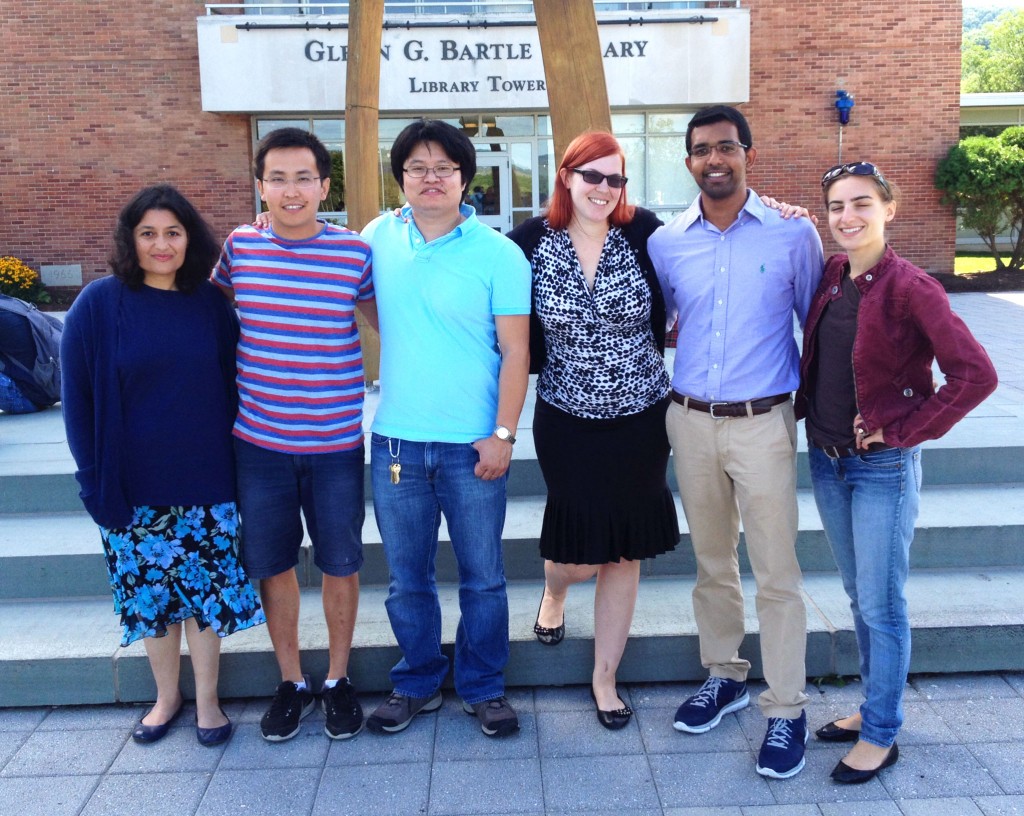
Graduate students are just a fraction of the student population at Binghamton University, but through teaching and research their presence has grown. The students that comprise the graduate population are represented by the Graduate Student Organization (GSO).
The GSO operates similarly to the Student Association (SA). They put on cultural, academic and social programs each year as well as represent the interests of graduate students to faculty and administration. Similarly to the SA, the GSO receives part of a $200,000 budget from an activity fee paid by all graduate students, which is at most $65 a semester per student.
The GSO Senate, which is equivalent to the SA Student Congress, approves budgets and addresses policy issues that come the student body. These issues include reducing University fees for students studying abroad, establishing graduate advising guidelines for faculty and creating health and wellness programs aimed at graduate students.
The GSO addresses issues that are specific to the graduate student community, such as childcare for students with families.
Bingwei Liu, vice president of multicultural affairs and a fourth year doctorate student studying electrical and computer engineering, said that graduate student parents could have difficulties paying the increased tuition for the campus pre-school.
“It’s unfair to graduate students because we don’t have very high income,” Liu said. “Some of us don’t have any income at all.”
Graduate representatives responded to higher day-care costs by reinstating a $6,000 fund to reimburse affected students.
Low income for students employed by the University is another issue the GSO is tackling, said Rukhsar Sharif, vice president of the GSO and a third year graduate student in the education program.
“We are trying to improve the situation of our student employees on campus so that their needs are being met,” Sharif said. “The cost of living is getting higher so we are concerned that they have enough salaries and that they are not being overworked at their jobs so that they have enough time for their own academic studies.”
The GSO has met with the Graduate Student Employees Union (GSEU) to advocate for better contracts from State University of New York and for increases in student funding at the University level. However, because the proposed contract was considered too low by these organizations, they plan to continue negotiations.
According to GSO President Alison Coombs, the lack of employment opportunities becoming a larger issue for graduate students. She said that the GSO is trying to create more career and networking events targeted at graduate students.
“Right now we’re working on getting more graduate student-oriented programs through the Career Development Center and the alumni office, both of which tend to focus on undergraduates,” Coombs said.
According Coombs, the current executive board is striving to connect graduate students across campus.
“We are trying to get graduate students to socialize across departments and across disciplines more because there’s a tendency for people to focus just within their own program,” said Coombs, a fourth year doctorate student studying philosophy. “We’re trying to build a stronger general graduate student community and make graduate students more a part of the campus.”
Though the GSO is primarily for graduate students, Coombs said that it is also interested in working more with the SA and is planning a lecture series with undergraduates and professors.
“We’re trying to connect with the SA and other groups on campus so that we can have better community among all students and then also among students, faculty and administration,” Coombs said.
Besides hosting academic and career events, the GSO has social events to bring graduate students together, said Anand Balashanmugam, a second year graduate student studying computer science and the graduate assistant to the president of GSO.
“We have monthly town hall meetings where we call in local community people and professors to talk about the University,” Balashanmugam said. “We have movie lover screenings, happy hour and we have end of semester parties.”
Balashanmugam also said that he hoped the GSO would reach out to more graduate students for events.
“For the past couple of years, we couldn’t publicize our events very well because we didn’t have a very good social media presence going on,” Balashanmugam said. “Now our Facebook page is very active, our Twitter page is very active.”
Michael Schwartz, a second year graduate student in student affairs administration, said he was interested in attending more GSO events for the chance to meet graduate students in other departments.
“It’s not that easy to get to know people as a grad student outside of your department,” Schwartz said. “Hopefully we get to know more people and we get active people who actually want to do things.”


